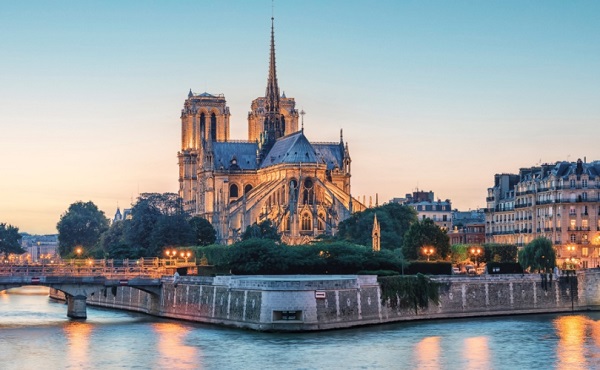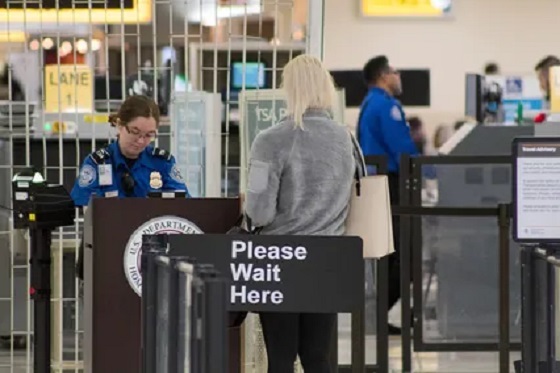International
Bells of Notre Dame Cathedral ring in streets of Paris for first time since 2019 fire

From LifeSiteNews
The bells of Notre Dame Cathedral have been heard in the streets of Paris for the first time since the devastating fire in 2019.
On November 8, the eight bells of the Notre Dame Cathedral finally rang in Paris following five years of restoration after the devastating 2019 fire that destroyed the historic church, according to AFP reporters.
The bells of Notre Dame in Paris rang out together on Friday for the first time since a 2019 fire that devastated the historic cathedral, AFP reporters said.https://t.co/P7BQwDtrLZ pic.twitter.com/zvjTbnlvsP
— AFP News Agency (@AFP) November 8, 2024
“This is a beautiful, important and symbolic step,” Philippe Jost, head of the public body tasked with restoring the cathedral, said.
The restoration of the cathedral’s bells marks a significant moment in French history after the beloved church was destroyed by a fire on April 15, 2019. As the fire raged, Parisians stood on the street watching the cathedral burn, many of whom saw the fire as a symbol of destruction of society and culture.
The Cathedral itself was a symbol of France’s rich Catholic history which is inseparable from French culture. The gothic church, filled with detailed art and majestic architecture, survived the French revolution, which destroyed hundreds of churches as the country attempted to wipe out Catholic influence.
Following the 2019 fire, many Catholics saw the destruction as a sign.
Bishop Athanasius Schneider viewed the fire as a “symbolic and evocative” sign of the “spiritual conflagration” that has attacked Catholicism in recent decades.
Similarly, Cardinal Raymond Burke described the fire as a “sobering reflection” on the “attacks upon the infinite beauty of the faith by the grievous sins and crimes of our day.”
Now, many are celebrating the restoration of Notre Dame, voicing hopes that it marks restoration within the Church and society.
“Represents the end of a dark era,” one user wrote. “The symbolism is clear.”
“In Catholic theology, church bells are blessed by priests to serve as audible exorcisms of local demons,” Catholic commentator Dr. Taylor Marshall wrote.
“The bells of Notre Dame Cathedral in Paris just began ringing again… just in time,” he added.
Notre Dame Cathedral is scheduled to formally reopen on December 8, the Solemnity of the Immaculate Conception of Our Lady.
International
No more shoes off: Trump ends TSA’s decades-old rule

 MxM News
MxM News
Quick Hit:
The Trump administration is phasing out one of the most despised airport security policies in America: the requirement to remove shoes during TSA screening.
Key Details:
- Passengers will no longer be required to remove their shoes at airport security checkpoints in coming weeks.
- The change is rolling out at Baltimore, Fort Lauderdale, Cincinnati, Portland, Philadelphia, and Piedmont Triad airports.
- White House Press Secretary Karoline Leavitt confirmed the policy reversal on Tuesday morning.
Diving Deeper:
The Trump administration announced it is ending the much-loathed Transportation Security Administration rule requiring passengers to remove their shoes during security checks, a mandate that has frustrated Americans since its introduction nearly two decades ago.
The change is being implemented first at Baltimore/Washington International Airport, Fort Lauderdale International Airport, Cincinnati/Northern Kentucky International Airport, Portland International Airport, Philadelphia International Airport, and Piedmont Triad International Airport in North Carolina, according to CBS News. The policy will expand to additional airports nationwide in the coming weeks.
White House Press Secretary Karoline Leavitt shared the news on X, posting, “Big news from [the Department of Homeland Security]!” Tuesday morning. A TSA spokesman told The New York Times that “TSA and DHS are always exploring new and innovative ways to enhance the passenger experience and our strong security posture,” suggesting the policy change is part of broader improvements under President Trump’s leadership.
The policy to remove shoes was first instituted in 2006, stemming from the December 2001 attempt by Richard Reid, known as the “shoe bomber,” to ignite explosives hidden in his shoes on a flight from Paris to Miami. Reid was sentenced to life in prison after pleading guilty to terrorism charges, but critics have argued the policy punishes every American traveler for the actions of one terrorist nearly 25 years ago.
Before the update, travelers in the TSA PreCheck program were already exempt from removing shoes, belts, and jackets. Now, under President Trump’s directive to reduce pointless regulatory burdens, the policy is being eliminated for all travelers.
Daily Caller
USAID Quietly Sent Thousands Of Viruses To Chinese Military-Linked Biolab


From the Daily Caller News Foundation
By Emily Kopp
The U.S. Agency for International Development (USAID) shipped thousands of viral samples to a lab in Wuhan over the course of a 10-year program even though it had no formal agreement with the lab in place, according to previously unreported documents.
The documents show that USAID funded the exportation of 11,000 samples from Yunnan Province, where some of the closest relatives of the COVID-19 virus circulate, to Wuhan, the epicenter of the pandemic, with no apparent plan for ensuring the samples were not misdirected to bioweapons and remained accessible to the U.S. government.
A $210 million USAID public health program called PREDICT, steered by the University of California-Davis, collected viral samples in countries throughout the globe but lacked long-term storage when funding dried up, according to rudimentary plans in 2019.
Dear Readers:
As a nonprofit, we are dependent on the generosity of our readers.
Please consider making a small donation of any amount here.
Thank you!
USAID’s sample dispensation plan for China is sparse: “No need [sic] information from Yunnan. They were never an official lab partner for PREDICT. All samples they helped collected [sic] are sent to, tested, and stored in Wuhan.”
The “lab” refers to the Wuhan Institute of Virology (WIV). WIV was a close partner of USAID contractor EcoHealth Alliance and a slated partner for a PREDICT-like program supported by the State Department. The lab has poor biosafety practices and ties to the People’s Liberation Army (PLA).
One of the closest known relatives of the COVID virus is among the viruses sampled with USAID funding.
“Investigations involving USAID’s former funding of global health awards remain active and ongoing,” a senior State Department official said in a statement to the Daily Caller News Foundation. “The American people can rest assured knowing that under the Trump Administration we will not be funding these controversial programs.”
The internal documents were obtained through a FOIA lawsuit brought by U.S. Right to Know, a nonprofit newsroom and public health research group.
The shuttering of USAID – which was officially completed Tuesday – has ignited a debate about its net impact on global health. A study in The Lancet projected an association between a dropoff in USAID funding and 14 million deaths based on an epidemiological model.
Secretary of State Marco Rubio said in a statement Tuesday that USAID spending has often undermined rather than strengthened American interests.
“Beyond creating a globe-spanning NGO industrial complex at taxpayer expense, USAID has little to show since the end of the Cold War,” Rubio said. “Development objectives have rarely been met, instability has often worsened, and anti-American sentiment has only grown.”
The now-defunct agency’s connection to the Wuhan lab complicates its global health legacy.
“The USAID $210 million contract for PREDICT should have included contractual terms that required all samples, or at least copies of all samples, be transferred to and stored by a US government facility,” said Rutgers University molecular biologist Richard Ebright told the DCNF. “The PREDICT grift did none of this.”
UC Davis did not respond to a request for comment. The State Department did not respond to a request for comment.
Today marks the first day of the State Department's America First foreign assistance rebranding initiative, led by @SecRubio.
Consistent branding will ensure contributions made by the the United States will be immediately recognized as American.
"The redesign is very simple,… pic.twitter.com/HZnbOxU0Sq
— Department of State (@StateDept) July 2, 2025
Did USAID Fund COVID’s Ancestor?
Many of the viruses stored at the lab in Wuhan may have been sampled with U.S. funding yet remain out of reach for U.S. government entities investigating the origins of COVID.
The samples were set to be preserved for testing – with human samples preserved for 10 years – the documents show. But the documents suggest that requirement was never incorporated into a formal contract with USAID.
The two scientists supervising the samples were: Ben Hu, a virologist at the WIV, who reportedly became sick with COVID-like symptoms in 2019; and Peter Daszak, a scientist who was debarred from federal funding after the U.S. government deemed him a threat to public safety for inadequate oversight of the research in Wuhan.
Hu and Daszak did not reply to requests for comment.
The documents show PREDICT contractors discussing viral samples taken from wildlife and stored in India, Liberia, Malaysia, the Republic of Congo and China. Some of the samples were stored in virus-transport media (VTM), which allows researchers to store live viruses for later use in the lab.
“It’s not rocket science to require a contract and supporting paperwork which establishes a relationship, testing protocol, and chain of custody, when one is sending out lab samples,” said Reuben Guttman, a partner at Guttman, Buschner & Brooks PLLC who specializes in ensuring the integrity of government programs, in an interview with the DCNF. “In any scientific endeavor, you need confidence in your results. That requires paperwork to prove your methodology is sound.”
-

 Bruce Dowbiggin2 days ago
Bruce Dowbiggin2 days agoEau Canada! Join Us In An Inclusive New National Anthem
-

 Crime2 days ago
Crime2 days agoEyebrows Raise as Karoline Leavitt Answers Tough Questions About Epstein
-

 Alberta2 days ago
Alberta2 days agoAlberta and Ontario sign agreements to drive oil and gas pipelines, energy corridors, and repeal investment blocking federal policies
-

 Alberta2 days ago
Alberta2 days agoCOWBOY UP! Pierre Poilievre Promises to Fight for Oil and Gas, a Stronger Military and the Interests of Western Canada
-

 International2 days ago
International2 days agoChicago suburb purchases childhood home of Pope Leo XIV
-

 Daily Caller2 days ago
Daily Caller2 days agoBlackouts Coming If America Continues With Biden-Era Green Frenzy, Trump Admin Warns
-

 Daily Caller2 days ago
Daily Caller2 days ago‘I Know How These People Operate’: Fmr CIA Officer Calls BS On FBI’s New Epstein Intel
-

 Frontier Centre for Public Policy23 hours ago
Frontier Centre for Public Policy23 hours agoNew Book Warns The Decline In Marriage Comes At A High Cost






